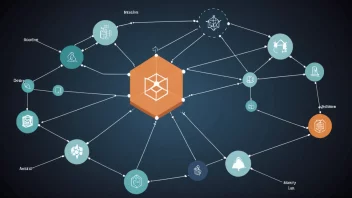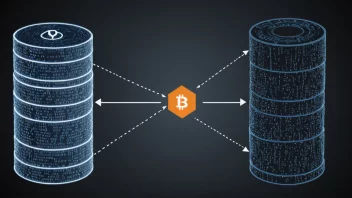Blockchain technology has transformed various industries by offering decentralized solutions that enhance transparency, security, and efficiency. While many people associate blockchain with cryptocurrencies, its potential extends far beyond digital currencies. In this article, we will explore five innovative ways blockchain can be utilized to create and enhance networks across different sectors.
1. Decentralized Identity Management
One of the most promising applications of blockchain is in identity management. Traditional identity systems often rely on centralized databases, which can be vulnerable to hacks and data breaches. Blockchain offers a decentralized approach, allowing individuals to control their own identities through cryptographic keys. This not only enhances security but also enables users to share their identity information selectively with different services, fostering trust and reducing fraud.
2. Supply Chain Transparency
In the realm of supply chain management, blockchain can significantly improve transparency and traceability. By recording every transaction on a public ledger, stakeholders can track the movement of goods from origin to destination. This level of visibility can help businesses identify inefficiencies, ensure product authenticity, and comply with regulatory requirements. For consumers, it means greater confidence in the products they purchase, knowing their origins and handling.
3. Peer-to-Peer Energy Trading
As the world shifts towards renewable energy sources, blockchain can facilitate peer-to-peer energy trading. In a decentralized energy market, individuals can sell excess energy generated from solar panels or wind turbines directly to their neighbors. This eliminates the need for intermediaries and can lead to lower energy costs for consumers. Blockchain ensures that all transactions are recorded transparently, making it easier to manage energy credits and incentives.
4. Smart Contracts for Business Agreements
Smart contracts, which are self-executing contracts with the terms of the agreement directly written into code, can revolutionize how businesses handle agreements. By utilizing blockchain, these contracts can automatically enforce and execute actions when predefined conditions are met. This not only reduces the need for intermediaries but also minimizes the risk of disputes and fraud, leading to faster and more efficient business transactions.
5. Decentralized Social Networks
With growing concerns over privacy and data ownership in traditional social media platforms, blockchain offers a solution through decentralized social networks. These networks enable users to maintain control over their data and monetize their contributions without relying on centralized platforms. By leveraging blockchain, users can engage in content creation and sharing while ensuring that their privacy is respected and that they are rewarded for their efforts.
In conclusion, the potential of blockchain technology to create and enhance networks is vast and varied. From decentralized identity management to peer-to-peer energy trading, each application demonstrates how this innovative technology can lead to increased efficiency, transparency, and trust among users. As blockchain continues to evolve, its impact on various sectors will undoubtedly expand, paving the way for a more connected and secure future.






